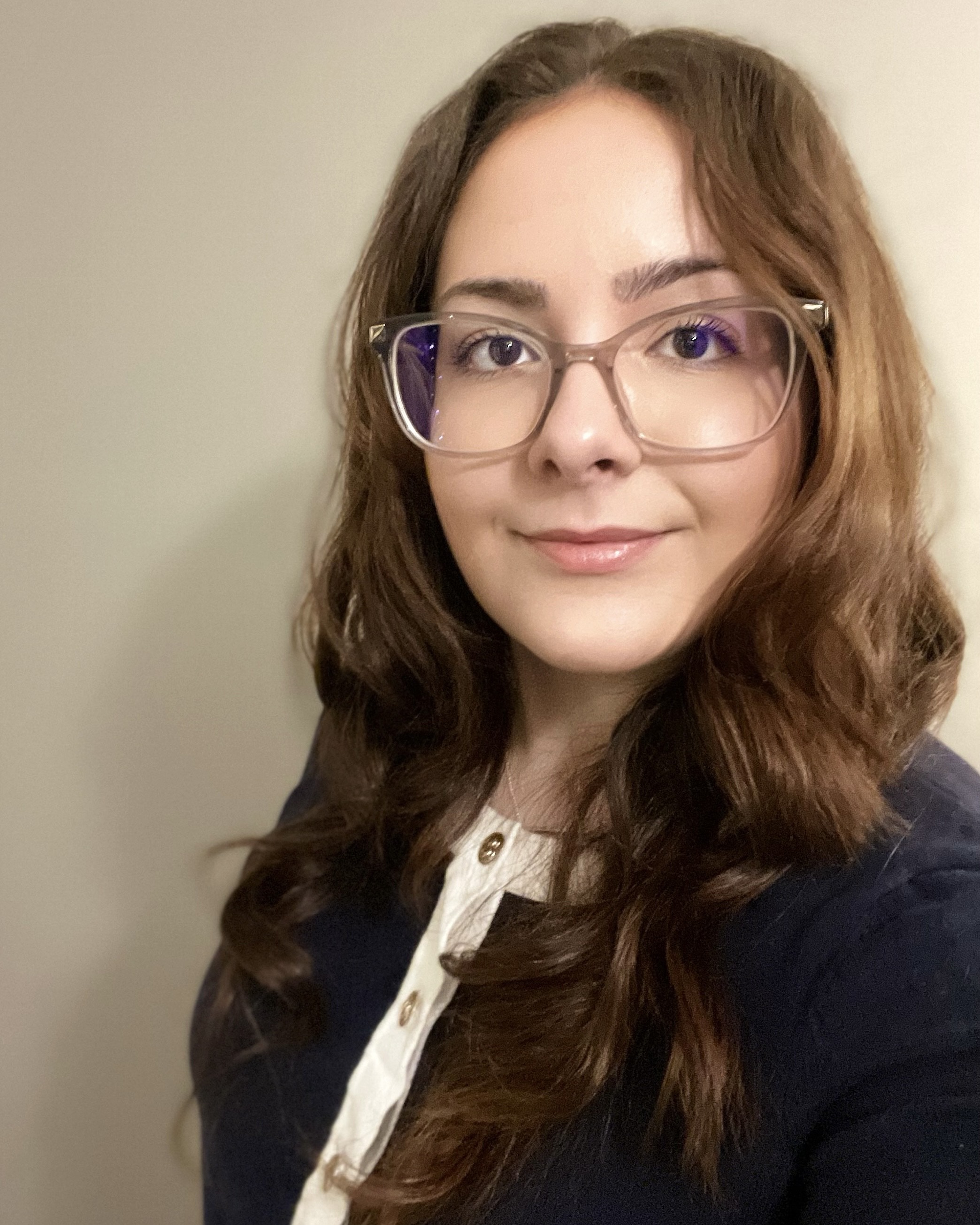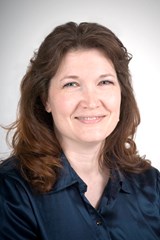Sleep. Caffeine. Academic performance. Each can affect the others. But in what ways?
That’s what psychology major Sophia Finizia wanted to know. With the support of her mentor Assistant Professor of Psychology Julie Evey, Ph.D., this Twinsburg resident devised a research project to find some answers.
The result? A second-place prize in psychology at the 2021 Undergraduate Symposium on Research, Scholarship, and Creative Endeavors for her presentation, "Caffeine, Sleep, and Grades: A Correlational Study." It has also led to a new phase of ongoing research… this time adding the components of stress and timing to the mix.
Sophia, now a senior at Kent State University’s Geauga Campus, says that she came up with the idea in spring 2020 as part of a class project for Dr. Evey’s course in Research Methods (PSYC 31574). She says, “I was interested in the topic because sleep, caffeine and academic performance seemed relevant to college students.” 
Sophia collected data from more than 100 participants (48 initially) with an online system Kent State uses that protects students’ anonymity. After Sophia organized the data in Excel, Dr. Evey ran it through a statistical program (SPSS) to find the relevant correlations.
The research findings demonstrate that “caffeine consumption was negatively correlated with cumulative GPA, which means more caffeine is related to lower GPA,” Sophia reports.
“The sleep quality and quantity measures show that better quality of sleep was related to higher cumulative GPAs. These do not tell us about causation, but it does show clear relationships suggesting that students might want to monitor their caffeine intake and sleep quality to keep it healthy.”
While Dr. Evey oversaw all aspects of Sophia’s research development — including IRB training and approval, running the project and interpreting analyses — “the work was hers,” Dr. Evey says of her student. “This was her idea that she developed and subsequently presented.”
Sophia gave an oral PowerPoint presentation at the symposium in April 2021. In her synopsis of the study’s correlational approach to finding the strength of the relationship among sleep duration, academic performance and caffeine intake, she concluded that “caffeine is shown to be correlated with lower academic performance and reduced sleep quality. Shorter sleep duration is also linked to lower academic performance.”
She believes her presentation was award-winning because of her formatting style and preparation. “The PowerPoint had fewer words and was easy to follow,” she says. “It was my second time presenting this research so I had practiced. I spoke more slowly this time, knowing how to pause. I was prepared to answer questions, even the ones that pointed out limitations of my research.”
Considering all of the caffeine-laden beverages and supplements on the market, these findings may prompt students to change their current caffeine consumption habits to enjoy improved academic performance. As for Sophia, “I never felt I overdid it with caffeine, but I am more aware of how much caffeine is in what we consume. For example, Barq’s Root Beer is the only common root beer that has caffeine in it.”
While considering the limitations of her original study, Sophia recognized that additional variables could be playing a role in participants’ academic performances besides caffeine and sleep. So in this second phase of her ongoing research, she is also measuring the effects of stress — common among college students — and the time of day when caffeine is consumed (to detect a possible correlation between caffeine and sleep). Sophia plans to present this study next spring.

Once Sophia earns her Bachelor of Science in Psychology, she plans to pursue a master’s degree and become a Licensed Professional Clinical Counselor for the general adult population. Eventually, she may pursue a psychology Ph.D. in either Clinical Psychology or Counseling Psychology.
“It has been a great privilege to work with Dr. Evey doing research,” she says. “Doing my own research has made research feel a lot less intimidating to me… and has also made me much more prepared to do more challenging research and literature investigations moving forward in my educational career.“
Likewise, Dr. Evey has enjoyed working on this project with Sophia. “Even with Covid, we have been able to continue working on this research project. No matter what we do in life, we are presented with situations where we need to understand evidence and figure out what to believe. Research experience helps with this. It is also critical if one is interested in pursuing an advanced degree in psychology. If students reading this are interested in research, please reach out to your faculty.”
